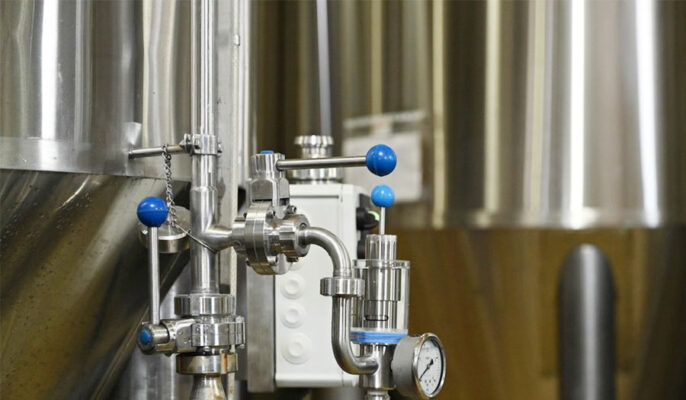Temperature control and heating are the most important parts of the brewing process. When you consider brewhouse heating, you have three main options available to you, steam heating, direct fire heating and electric heating. Each of them works in a different way to achieve the same result, which is continuous heat during the brewing process. Each of these methods has pros and cons that make them better suited for different types of breweries. Depending on your size, budget and goals, there will be different brewhouse heating options that will work best for you.
Brewery Heating Options
Steam heating
Steam heating is the most common method of brewhouse heating in large breweries, usually using a steam jacket. This is a shell through which steam is passed to heat the wort inside.
Steam heating is the best option for heating a brewhouse room on a budget.
Advantage
- fast heating
- shorter boil time
- Helps the wort move in the kettle
- burnt rare
- Uniform heating
Shortcoming
- high cost
- Not worth it for a small brewery

Direct fire heating
Direct fire heating, as the name suggests, is heating with an open fire under a brewery kettle. Usually oil or natural gas is used as the burner.
Direct fire can be used in mash tuns, but this is less common as the syrup can stick together or burn due to localized hot spots.
Direct fire heating is simple to operate, and installation or storage is not as complicated as steam. Efficiency and safety are also high. You don’t need much training to use it, and security concerns aren’t all that important.
This approach is ideal for mid-sized breweries, especially those that may not have the space or budget to invest in steam.
Advantage
- Save space
- Low initial cost
- Easy to use
Shortcoming
- Building restrictions on installation
- Faster heat dissipation
- High scorching rate
Electric heating
Electricity is the easiest method of brewhouse heating. Heat is applied from inside the electrical component rather than from the outside. These are like electric heaters found in other appliances.
Because the heat build-up can take a long time, it can be tricky to clean and harder to control. There is also an increased risk of burning and caramelization. Electric heaters are much more expensive to run than other options. Thus, electricity may be more expensive in the long run.
Advantage
- lower upfront costs
- Good for smaller breweries
- Energy efficient
Shortcoming
- harder to control
- higher operating costs
- not suitable for large breweries
- Differences Between Heating Options
Which brewery heating method is best?
The above are the three main methods of heating in a brewery, one of which is an essential part of starting a brewery. Each of these pros and cons should help you decide which is right for you. If you are still a bit unsure, here are some suggestions from Micet for your reference:
- Steam Heat: Ideal for most who need control and extension. The only real downside here is the cost and the safety training involved. So if these factors are not an issue for you, steam heating is the way to go.
- Direct fire heating: There are disadvantages and advantages, this one is suitable for most medium-sized or low-budget people.
- Electric heating: only recommended for smaller breweries, other breweries cannot choose due to space or cost.
How big is your brewery?
The size of the brewhouse will determine your choice. In smaller systems, electric heating of 500L and below is the most used. Your main concern with electric heating is the expulsion of steam from the brewing kettle. If you can’t vent to the outside, you can install a steam condenser on the steam outlet of the brewing kettle. These condensers run cold water through them, which then turns the steam into water, which is then discharged into the drain.
Brewery Heating Options Conclusion
Deciding which brewery heating option is right for you isn’t easy. Key factors to consider:
- Location
- Budget
- Building
- Utilities
- How big is your brewery
- Heating speed
- Hotspots
All factors, when considered together, will determine which heating method you choose for your brewery. If you need help with these questions or anything else related to a potential brewing project, please feel free to contact Micet for help. micet will provide you with professional customized services.




